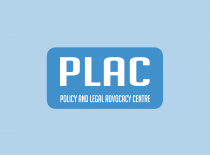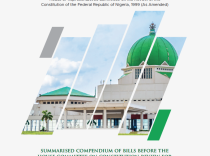The Senate and House of Representatives at its plenary session of Thursday, 1 July 2021, finally passed the Petroleum Industry Bill (PIB), 2021 which seeks to provide a legal, governance, regulatory and fiscal framework for the Nigerian petroleum industry, the development of host communities.
Presenting the report on the Bill, the Chairman of the Senate Joint Committee on Petroleum (Downstream); Petroleum (Upstream) and Gas, Sen. Sabo Mohammed Nakudu (APC: Jigawa) and Chairman of the Ad-hoc Committee on PIB, Hon. Mohammed Tahir Monguno (APC: Borno informed lawmakers of both Houses respectively, that the main objectives of the Bill is to promote growth in the oil and gas industry, modernize fiscal systems and enhance global competitiveness.
According to the Chairmen, the Bill comprises of 5 distinct chapters:
Chapter 1: Governance and Institutions which focuses on:
- Creating efficient and effective governing institutions with clear and separate roles for the petroleum industry;
- Establishing a framework for the creation of a commercially oriented and profit-driven national petroleum company;
- Promoting transparency, good governance and accountability in the administration of the petroleum resources of Nigeria;
Chapter 2: General Administration which focuses on:
- The exploration and exploitation of petroleum resources in Nigeria for the benefit of the Nigerian people; and
- Efficient, effective and sustainable development of the petroleum industry;
- Liberalization of the mid-stream and downstream petroleum industry.
Chapter 3: Host Communities Development which deals with:
- Fostering sustainable peace and prosperity within host communities, provide direct social and economic benefits from petroleum operations to host communities; and
- Creating a framework to support the development of host communities, among others.
Chapter 4: Petroleum Industry Fiscal Framework which provides:
- A global competitive and progressive fiscal framework which places Nigeria as a desired investment destination in Africa, balancing rewards with risk and enhancing revenues to the FG; and
- A forward looking, easy to implement fiscal framework with clarity, transparency and effectiveness which enhances the revenue base of the federation while ensuring increased returns on investment.
Chapter 5: Miscellaneous Provisions which comprises of 8 schedules and captures the savings provisions in the Bill based on options available to operators on its voluntary conversion to either the new fiscal regime or maintain status quo until expiration of leases or licenses.
- First Schedule generally asserts the Minister’s right of pre-emption in line with various circumstances in the industry;
- Second Schedule defines and enhances the principle of negotiating Incorporated Joint Ventures (IJVs);
- Third Schedule defines the domestic base price and pricing framework of gas under free market structure of willing buyer and willing seller
- Fourth Schedule provides the formula for gas price for other gas-based industries with the possibility of creating flexibility with respect to the pricing structures where market conditions change;
- Fifth Schedule explains with clarity the capital allowances as it relates to the use and disposal of oil and gas assets;
- Sixth Schedule defines production allowances and cost price ratio limits in the oil and gas industry;
- Seventh Schedule explains the main fiscal framework of the Bill which covers petroleum fees, rents and royalties across the various production terrains as well as its related penalties for non-payment; and
- Eighth Schedule deals with the creation of the Ministry of Petroleum Incorporated to legalize the shareholding of NNPC Limited with provisions required for the creation of same.
In the Senate, lawmakers had dissolved into the Committee of the Whole to commence a closed-door session with the Minister of State for Petroleum, Mr. Timipre Sylva and the GMD, Nigerian National Petroleum Corporation (NNPC), Mr. Mele Kolo Kyari for further briefing on the Bill and on resumption of plenary, it considered the clause-by-clause provisions of the Bill and passed it for Third Reading. The House of Representatives on its part, had met with the GMD of NNPC the day before on Wednesday, 30 June 2021 over the Bill.
It would be recalled that President Muhammadu Buhari through a letter which was read at the Senate and House of Representatives plenary session of Tuesday, 29 September 2020, had transmitted the Petroleum Industry Bill to the National Assembly for consideration and passage. President Buhari had informed lawmakers that Bill is expected to carry out significant reforms in the laws governing the petroleum industry.
Following the passage of the Bill by the two chambers, it is expected that the Bill will be transmitted to the President for Assent.





